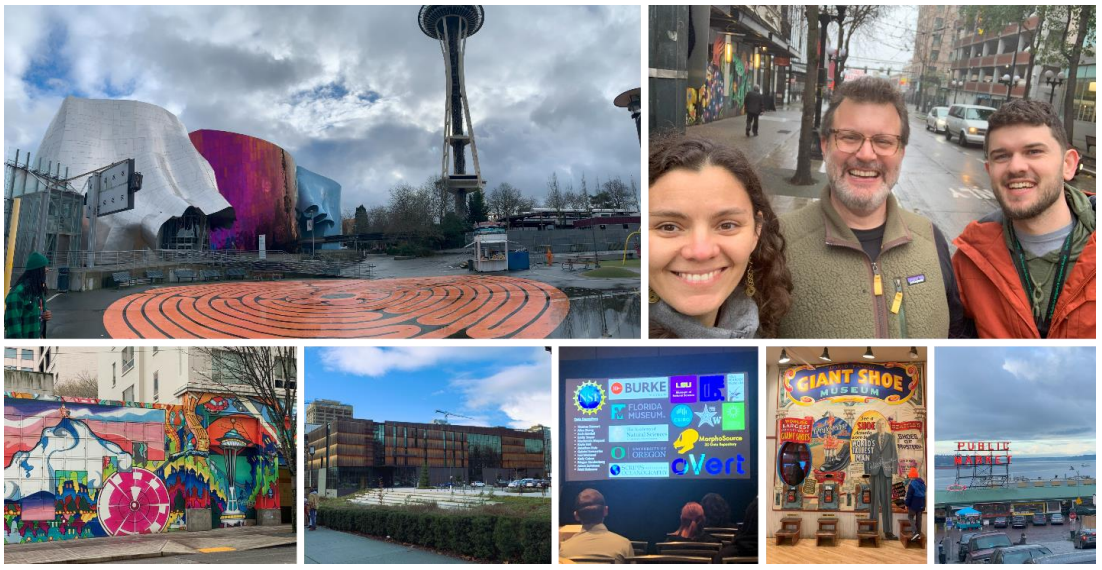Earlier this year, on January 2 of 2024, I embarked on a plane to go for the first time to Seattle to participate in the meeting of the Society for Integrative and Comparative Biology (SICB). The meeting took place at the Seattle Convention Center from January 2 to the 6th. During this meeting I gave a talk on the latest advances in my dissertation research and related projects that are in collaboration with herpetologists from different institutions around the globe. My presentation was part of the Division of Phylogenetics and Comparative Biology (DPCB) Best Student Presentation David and Marvalee Wake Award.
For this meeting, I presented the preliminary results of three interconnected projects that aim to establish the relationship between mass and length in frogs to further estimate length and mass of fossils. These estimates were then tested in a fossil community of Montana that lived right before the extinction of dinosaurs, approximately 67 million years ago. This presentation was challenging since the audience was very diverse, the time was short, I had a massive amount of data and information I wanted to convey, and mainly I wanted to make sure that everyone would be able to appreciate the importance and the potential of frogs in paleontology and paleobiology. Though I did not receive the Award, I felt honored to have been selected for the Award session and participating was a great learning opportunity.
Besides having the opportunity of communicating my research, this meeting was a great place to meet new people. Frog paleontology is a very small field in the world of paleontology or herpetology but, after my presentation, I received a good number of questions from the audience and in the following days I was approached multiple times with comments and questions about my research. In the meeting I was also introduced by my advisor to new potential collaborators and other students in frog evolution in different institutions. Today I am collaborating with some of the researchers I met in January. Participating in this meeting was a fantastic personal and professional experience. I am thankful for the support from the FLMNH student travel award!
Maria Camila Vallejo-Pareja is a graduate student pursuing a Ph.D. through the College of Liberal Arts and Sciences, Department of Biology, advised by Dr. David Blackburn, Curator of Herpetology, and Dr. Jonathan Bloch, Curator of Vertebrate Paleontology here at the Florida Museum.
The 2024 Spring Student Travel Awards are supported by the FLMNH Department of Natural History, including funds from the Louis C. and Jane Gapenski Endowed Fellowship. If you would like to help support this fund for future student awards, please go to:
Louis C. and Jane Gapenski Endowed Fellowship